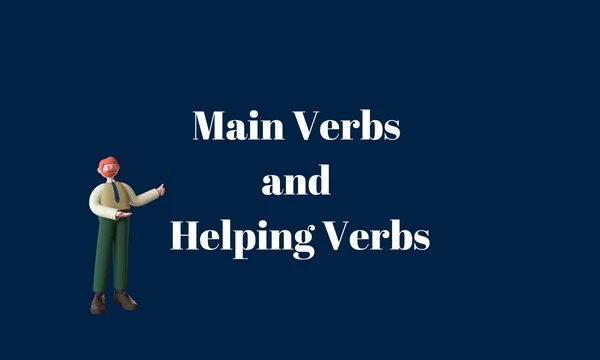Main Verbs and Helping Verbs - 6th Grade Grammar
Have you ever wondered how we create complex sentences that accurately convey actions, time, and intention? It all boils down to understanding main verbs and helping verbs. These essential components work together to form the backbone of our sentences, making them clear and expressive.
Welcome, 6th graders and educators! This guide is designed to help students grasp the fundamentals of main verbs and helping verbs, and for teachers, it offers valuable insights and examples to enhance grammar lessons. By mastering these elements, you'll be able to write more effectively and understand English grammar more deeply.
Main Verbs and Helping Verbs
What is a main verb in a sentence?
A main verb shows the main action or state of being in a sentence.
Examples:
Beau and his mom cook dinner on Thursday nights.
My sister has followed this program for years.
The series will reach its conclusion next spring.
They may release a movie shortly after that.
We will be checking the magazines for news about it.
I should pay that much attention to my studies.
What is a helping verb in a sentence?
A helping verb helps the main verb show tense. Helping verbs include forms of be, do, and have, as well as will, can, may, should, and must.
Examples:
They will make steamed dumplings for dinner tomorrow.
My sister has followed this program for years.
The series will reach its conclusion next spring.
They may release a movie shortly after that.
We will be checking the magazines for news about it.
I should pay that much attention to my studies.
What is a verb phrase?
A verb phrase consists of a main verb and one or more helping verbs.
Examples:
Beau has enjoyed learning how to cook.
My sister has followed this program for years.
The series will reach its conclusion next spring.
They may release a movie shortly after that.
We will be checking the magazines for news about it.
I should pay that much attention to my studies.
<->
Main Verbs and Helping Verbs Activity
Main Verbs and Helping Verbs Quizizz Quiz- 6th Grade Grammar
Conclusion
Understanding main verbs and helping verbs is essential for creating well-structured sentences. These verbs work together to give your sentences depth and clarity. For students, mastering this aspect of grammar will enhance your writing skills and overall communication. Teachers can use this guide to support students in grasping these fundamental concepts, making grammar lessons more effective and engaging. Keep practicing, and soon you'll find that using main and helping verbs becomes second nature, allowing you to express yourself more clearly and accurately.
FAQs
Q1. What are main verbs?
A1. Main verbs show the action or state of being in a sentence. They stand alone or with helping verbs.
Q2. What are helping verbs?
A2. Helping verbs (auxiliary verbs) assist main verbs to express tense, mood, or voice in a sentence.
Q3. Can you give examples of main verbs and helping verbs?
A3. Sure! Main verbs: "run," "sing," "write." Helping verbs: "is," "have," "can."
Q4. How do main and helping verbs work together?
A4. Helping verbs modify main verbs to create different tenses or convey additional meaning.
Q5. How do I identify main and helping verbs in a sentence?
A5. Main verbs can stand alone, while helping verbs are followed by the main verb. Example: "She can sing."
Q6. Can a sentence have more than one helping verb?
A6. Yes, sentences can have multiple helping verbs. Example: "He should have been studying."
Q7. Can helping verbs be used without main verbs?
A7. No, helping verbs require main verbs to create meaningful sentences.
Q8. How can I practice using main and helping verbs?
A8. Write sentences and identify main and helping verbs. Play grammar games and quizzes.
Q9. Are there irregular main verbs or helping verbs?
A9. Yes, some main and helping verbs have irregular forms in different tenses.
Q10. What is the importance of using main and helping verbs correctly?
A10. Proper usage of main and helping verbs ensures clear and accurate communication.
Resources
- "Harcourt Language: Grade 6" by Harcourt School Publishers.
- "Grammar for Middle School: A Sentence-Composing Approach" by Don Killgallon and Jenny Killgallon.
- Education.com: Offers grammar lessons and worksheets for 6th-grade students.
- Grammarly Handbook: Provides explanations on main and helping verbs suitable for middle school students.

